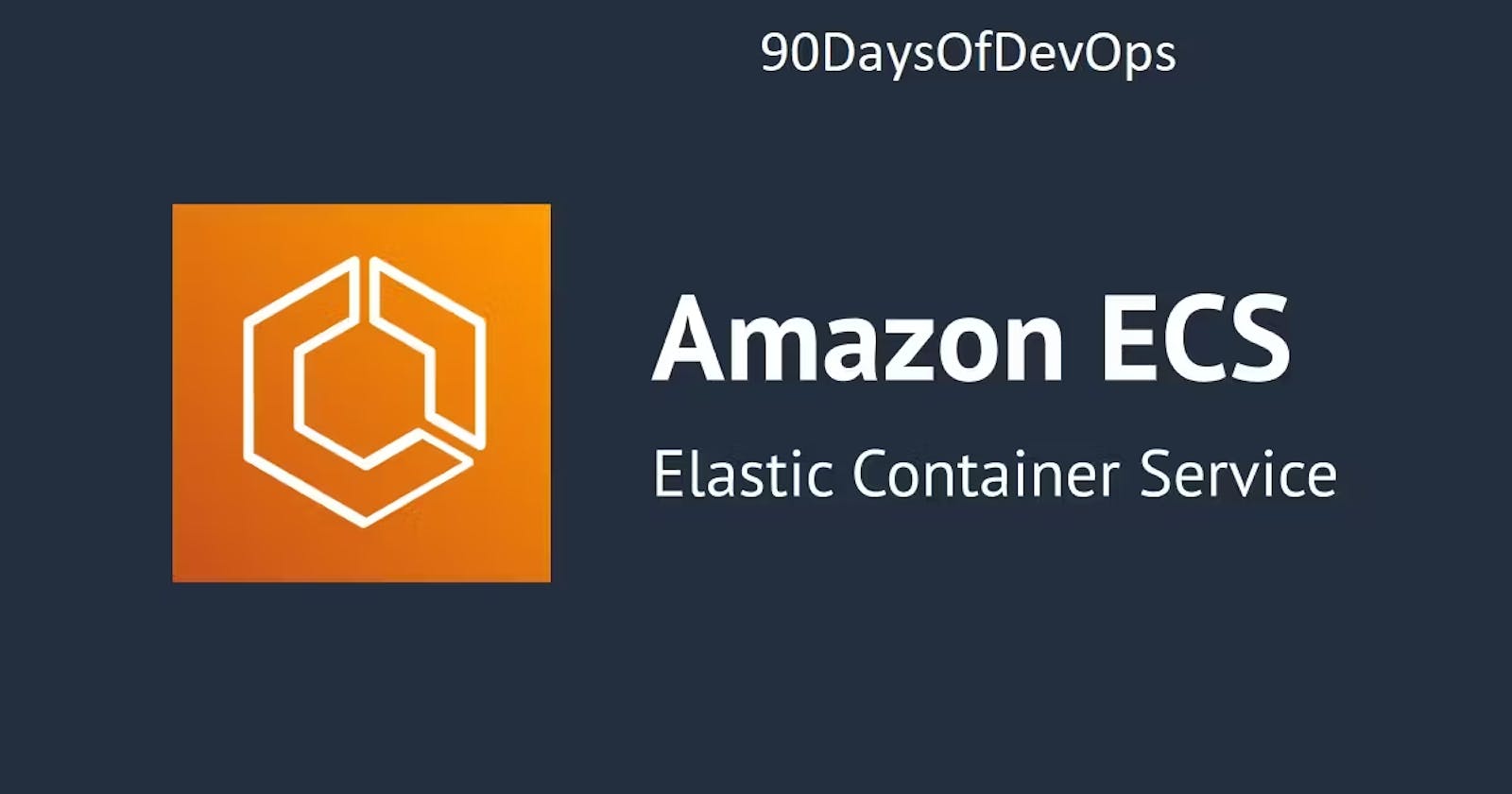Table of contents
What is ECS ?
🚀 ECS stands for Amazon Elastic Container Service. It's a service provided by AWS for managing and orchestrating containerized applications. 🐳 Containers are like lightweight, portable units of software that include everything needed to run an application, such as code, runtime, system tools, libraries, and settings. ECS helps you deploy, manage, and scale containerized applications using Docker containers and lets you easily run applications on a managed cluster of EC2 instances. 🛠️ So, ECS basically simplifies the process of running and managing containers in the cloud!
- ECS (Elastic Container Service) is a fully-managed container orchestration service provided by Amazon Web Services (AWS). It allows you to run and manage Docker containers on a cluster of virtual machines (EC2 instances) without having to manage the underlying infrastructure.
With ECS, you can easily deploy, manage, and scale your containerized applications using the AWS Management Console, the AWS CLI, or the API. ECS supports both "Fargate" and "EC2 launch types", which means you can run your containers on AWS-managed infrastructure or your own EC2 instances.
ECS also integrates with other AWS services, such as Elastic Load Balancing, Auto Scaling, and Amazon VPC, allowing you to build scalable and highly available applications. Additionally, ECS has support for Docker Compose and Kubernetes, making it easy to adopt existing container workflows.
Overall, ECS is a powerful and flexible container orchestration service that can help simplify the deployment and management of containerized applications in AWS.
Difference between EKS and ECS ?
🤖 Here's the difference between Amazon Elastic Container Service (ECS) and Amazon Elastic Kubernetes Service (EKS):
Orchestration Technology:
ECS: It's a proprietary container orchestration service provided by AWS. You manage your containers using ECS-specific APIs and tools.
EKS: It's a managed Kubernetes service provided by AWS. Kubernetes is an open-source container orchestration platform that's widely used in the industry. With EKS, you can run Kubernetes clusters on AWS without having to manage the underlying infrastructure.
Abstraction Level:
ECS: It provides a higher level of abstraction compared to Kubernetes. AWS manages the underlying infrastructure for you, and you interact with ECS at the level of tasks, services, and clusters.
EKS: It provides a lower level of abstraction, giving you more control over your Kubernetes clusters. You have direct access to Kubernetes APIs and can customize your clusters according to your requirements.
Ecosystem and Community:
ECS: While ECS has a growing ecosystem and community support, it's not as mature or as widely adopted as Kubernetes.
EKS: Kubernetes has a large and active community with extensive documentation, third-party tools, and support resources available. This can be advantageous if you need access to a wide range of Kubernetes-related tools and expertise.
Flexibility and Portability:
ECS: It's tightly integrated with other AWS services, making it a good choice if you're already heavily invested in the AWS ecosystem. However, this tight integration can limit portability if you want to run your applications on non-AWS environments.
EKS: Kubernetes is more flexible and portable, allowing you to run your applications on AWS, on-premises, or on other cloud providers without significant changes to your deployment configuration.
In summary, ECS provides a simpler, AWS-native approach to container orchestration, while EKS offers the flexibility and familiarity of Kubernetes for more advanced use cases and multi-cloud deployments. Your choice between ECS and EKS will depend on factors such as your existing infrastructure, level of control needed, and familiarity with container orchestration technologies.
- EKS (Elastic Kubernetes Service) and ECS (Elastic Container Service) are both container orchestration platforms provided by Amazon Web Services (AWS). While both platforms allow you to run containerized applications in the AWS cloud, there are some differences between the two.
Architecture: ECS is based on a centralized architecture, where there is a control plane that manages the scheduling of containers on EC2 instances. On the other hand, EKS is based on a distributed architecture, where the Kubernetes control plane is distributed across multiple EC2 instances.
Kubernetes Support: EKS is a fully managed Kubernetes service, meaning that it supports Kubernetes natively and allows you to run your Kubernetes workloads on AWS without having to manage the Kubernetes control plane. ECS, on the other hand, has its own orchestration engine and does not support Kubernetes natively.
Scaling: EKS is designed to automatically scale your Kubernetes cluster based on demand, whereas ECS requires you to configure scaling policies for your tasks and services.
Flexibility: EKS provides more flexibility than ECS in terms of container orchestration, as it allows you to customize and configure Kubernetes to meet your specific requirements. ECS is more restrictive in terms of the options available for container orchestration.
Community: Kubernetes has a large and active open-source community, which means that EKS benefits from a wide range of community-driven development and support. ECS, on the other hand, has a smaller community and is largely driven by AWS itself.
In summary, EKS is a good choice if you want to use Kubernetes to manage your containerized workloads on AWS, while ECS is a good choice if you want a simpler, more managed platform for running your containerized applications.

